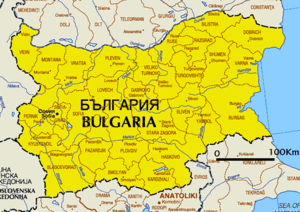Marine Biotechnology in Bulgaria

|
Go back to: Home > Strategies, Policies and Programmes > European countries
Overarching science strategies, plans and policies
There are no specific Marine Biotechnology strategies, plans or policies in Bulgaria. Bulgarian Science & Technology Policy for the period 2009–2019 is described in the National Strategy for Scientific Research.
- National Strategy for Scientific Research Ministry of Education, Youth and Science[1]
Research funding schemes and programmes
Funding for scientific research is provided by the National Science Fund [2]. For the financial year 2012-2013 there was one competition for research programmes in the thematic priorities with a total annual budget for all thematic priorities of about 11 million euro. Most of the thematic priorities may contain marine biotechnology research elements inlcuding:
- Energy; energy efficiency and transport
- Development of ec-technologies and innovations
- New materials and nano-technology
- ICT
- Health; quality of life and biotechnologies
National Research Funding Programmes which have a significant marine research element include:
- Development of Scientific Potential managed by the National Science Fund [3]
Research priorities for marine biotechnology research
n/a
Strategic documents
n/a
Infrastructures and coordination and support capacities / initiatives
- In 2012, Bulgaria operates 1 local/coastal vessel of 34 m (Professor A. Valkanov) and 1 oceanic vessel of 55,5 (Akademic) registered at the European Research Vessels Infobase [4].
- In 2012, Bulgaria maintains about 4 large marine research equipments registered in the European large Exchangeable instruments database [4].
Major initiatives
n/a
References
Disclaimer
This draft country profile is based on available online information sources and contributions from various country experts and stakeholders. It does not aim nor claim to be complete or final, but should be considered as a dynamic and living information resource that will be elaborated, updated and improved as more information becomes available, including further inputs from experts and stakeholders.
